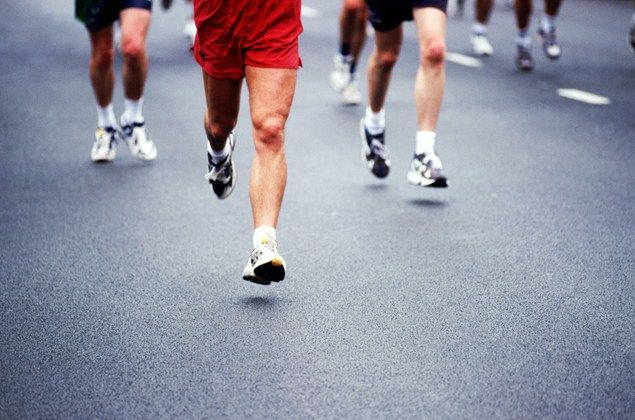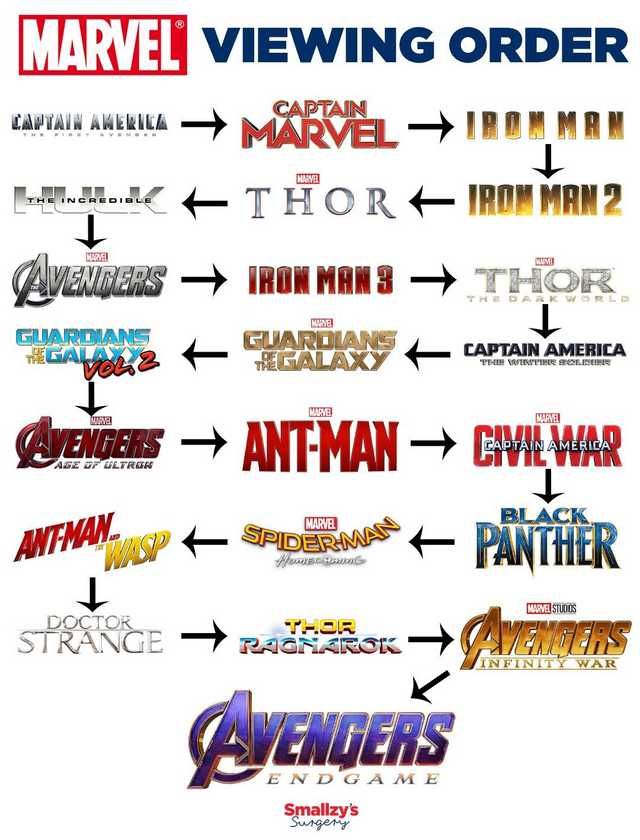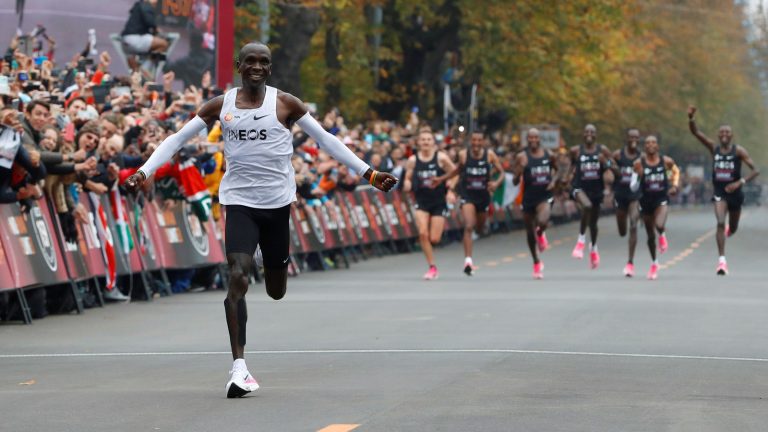How Long Does Marathon Recovery Take
Marathon recovery typically takes two to four weeks. When completing a marathon, your body undergoes significant stress and muscle damage, requiring a sufficient amount of time for recovery.
Rest, proper nutrition, and light exercise can aid in the healing process, allowing your muscles and tissues to repair and rebuild. It is important to listen to your body and gradually ease back into your regular training routine to prevent injuries and help your body regain its strength.
Recovery time can vary depending on factors such as the intensity of the race, individual fitness level, and overall health. By prioritizing rest and following a structured recovery plan, you can optimize your recovery and get back to running stronger and better than ever.
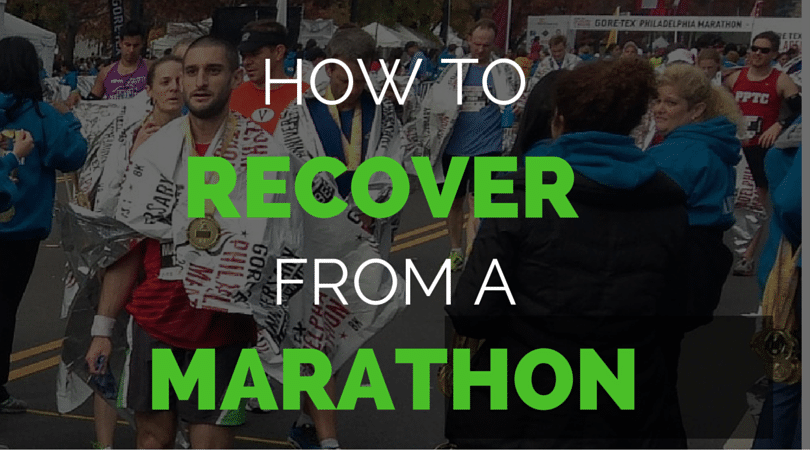
Credit: runnersconnect.net
Factors Affecting Marathon Recovery
Marathon recovery duration varies based on several factors, including training intensity, running experience, and overall fitness level. Additionally, proper rest, hydration, nutrition, and active recovery play crucial roles in determining the length of marathon recovery.
Physical Stress On The Body
Mental And Emotional Fatigue
Factors Affecting Marathon Recovery After completing a marathon, the time needed for recovery varies based on several factors.Physical Stress On The Body
Muscle Damage: Excessive exertion can lead to muscle soreness and micro-tears, delaying recovery. Dehydration: Proper hydration is vital to aid muscle recovery and reduce fatigue post-marathon.Mental And Emotional Fatigue
– Psychological Impact: Mental exhaustion can prolong recovery time after the physical challenge of a marathon. – Stress and Anxiety: Emotional strain can hinder the body’s ability to recuperate effectively. Recovery duration after a marathon is influenced by physical and mental factors that impact the body’s ability to heal efficiently.
Credit: runnersconnect.net
Immediate Post-marathon Recovery
Marathons can be a grueling test of physical and mental endurance. Crossing that finish line is an incredible accomplishment, but it’s also important to prioritize your recovery to ensure you bounce back quickly and safely. In this blog post, we’ll be exploring the immediate post-marathon recovery period, focusing on hydration and nutrition.
Recovery Period
After completing a marathon, your body needs time to recover from the intense physical effort you’ve put it through. The immediate post-marathon recovery period typically lasts between one to two weeks. During this time, it’s crucial to listen to your body and provide it with the rest it needs. Avoid any high-impact activities or intense workouts during this period to prevent further strain or injury.
Hydration And Nutrition
Proper hydration and nutrition play a vital role in post-marathon recovery. Your body becomes depleted of essential nutrients and fluid during the race. Replenishing these is crucial for efficient and effective recovery.
Hydration is of utmost importance, as you lose a significant amount of fluid through sweat during the marathon. Aim to drink plenty of fluids, focusing on water and electrolyte-rich beverages. These will help replace the lost fluids and electrolytes, aiding in the recovery process.
Nutrition also plays a crucial role in recovery. Consuming a balanced diet rich in carbohydrates, proteins, and healthy fats is essential to repair damaged muscles and replenish glycogen stores. Include foods like lean meats, whole grains, fruits, and vegetables in your post-marathon meals to promote healing and reenergize your body.
If you’re struggling to meet your nutritional requirements through food alone, consider incorporating supplements into your routine. Multivitamins and mineral supplements can help ensure your body receives the necessary nutrients for optimal recovery.
Remember, recovery is a gradual process, and each individual’s recovery time may vary. It’s important to listen to your body and give it the time it needs to heal. With proper hydration, nutrition, and rest, you’ll be on your way to a successful marathon recovery!
Physical Recovery
Recovering from a marathon can take several weeks as the body repairs muscle damage and replenishes energy stores. Adequate rest, hydration, nutrition, and light exercise can help speed up the recovery process. Listen to your body’s cues to determine when it’s ready to resume regular training.
Physical Recovery: After completing a marathon, it’s crucial to give your body the time and care it needs to recover. Physical recovery is an essential part of the post-marathon process, as it allows your muscles and body systems to return to their pre-race state. In this article, we will explore the different aspects of physical recovery, focusing on two key areas: relaxation and rest, and active recovery methods.Relaxation And Rest:
Rest is a vital component of marathon recovery, and it involves both physical and mental relaxation. Giving your body time to rest allows for muscle repair and reduces the risk of injury. Adequate sleep is crucial during this phase, as it helps replenish energy levels and aids in overall recovery. Here are some ways you can incorporate relaxation and rest into your marathon recovery plan: 1. Get Quality Sleep: Aim for 7-9 hours of uninterrupted sleep each night to aid in the healing process and ensure optimal recovery. 2. Take Power Naps: Short naps during the day can help rejuvenate your body and boost your energy levels. 3. Utilize Mindfulness Techniques: Engage in activities like meditation or deep breathing exercises to reduce stress and promote relaxation. 4. Enjoy Gentle Massages: Treat yourself to a soothing massage to alleviate muscle soreness and improve blood circulation.Active Recovery Methods:
In addition to rest, active recovery methods can play a significant role in accelerating the healing process. These activities involve low-intensity exercises that aid in muscle recovery without causing further strain. Engaging in active recovery can help reduce muscle soreness and improve flexibility. Consider incorporating the following active recovery methods into your marathon recovery routine: 1. Light Cardiovascular Exercise: Activities like walking, swimming, or cycling at a comfortable pace can increase blood flow to your muscles, aiding in their recovery. 2. Stretching and Yoga: Gentle stretching exercises and yoga poses help relieve muscle tightness and enhance flexibility. 3. Foam Rolling: Use a foam roller to target specific muscle groups, releasing tension and improving muscle recovery. 4. Hydrotherapy: Alternating between hot and cold water treatments can reduce inflammation and promote healing. 5. Low-Impact Cross-training: Engage in activities such as elliptical training or low-impact strength training to maintain fitness levels without overtaxing your recovering muscles. Remember, every individual’s recovery process is unique, and it’s essential to listen to your body. Gradually introduce these active recovery methods and modify them based on your comfort level. By incorporating relaxation and rest along with active recovery techniques, you can optimize your marathon recovery and get back on track faster.Mental And Emotional Recovery
Mental and emotional recovery after completing a marathon is crucial for overall well-being.
Psychological Impact
Acknowledge the mental toll of running a marathon, it’s essential and valid.
Positive Mindset
Fostering a positive frame of mind aids in the recovery process.
Long-term Marathon Recovery
Recovering from a marathon is not just about the immediate post-race period. Long-term recovery is a crucial aspect that often gets overlooked. It involves restoring the body to its pre-race state and preventing any potential long-term damage or injuries. To ensure optimal recovery, it’s important to focus on practices that contribute to injury prevention and follow a structured training plan.
Injury Prevention
Preventing injuries is essential for long-term marathon recovery. It involves taking proactive measures to strengthen the body and reduce the risk of potential issues. Incorporating strength training exercises, proper stretching techniques, and regular rest periods are key factors in preventing injuries. Listening to your body and addressing any discomfort or pain immediately can also help in averting long-term damage.
Structured Training Plan
A structured training plan is instrumental in long-term marathon recovery. It should include adequate rest periods, cross-training activities, and gradual progression in mileage. Following a well-designed training plan helps in maintaining physical and mental well-being, reducing the likelihood of overtraining or burnout. It also allows for consistent improvement and prevents the risk of long-term injuries.
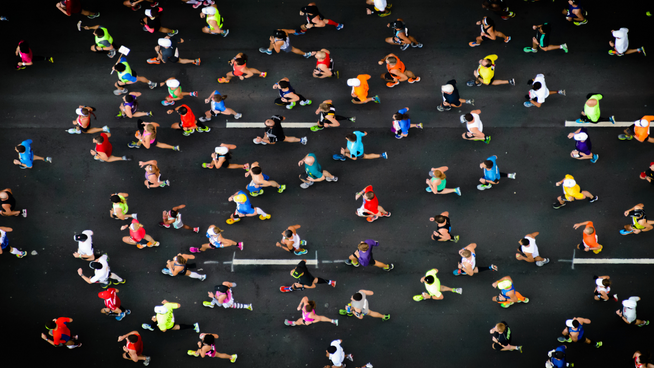
Credit: www.stack.com
Frequently Asked Questions Of How Long Does Marathon Recovery Take
How Long Do You Need To Recover From A Marathon?
Recovery time for a marathon varies depending on factors like fitness level and age. Generally, it takes about two to four weeks to recover fully, but light exercise and stretching can begin within a few days after the race. Listen to your body and gradually rebuild your training intensity.
What Should You Not Do After A Marathon?
After a marathon, avoid these actions: Don’t push yourself too hard, give your body time to recover. Avoid excessive stretching or intense workouts. Refrain from running long distances. Don’t neglect proper hydration and nutrition. Lastly, avoid skipping rest and sleep.
Remember to take care of your body post-race.
How Many Days Rest Before Full Marathon?
Rest for 2-3 days before a full marathon to ensure your body is fully recovered.
Conclusion
After a marathon, recovery time varies but typically takes 1-3 weeks based on individual factors. Prioritize rest, nutrition, and light activity to aid your body in bouncing back. Listen to your body and gradually resume training to ensure a successful comeback to running.
Stay patient and trust the recovery process.

